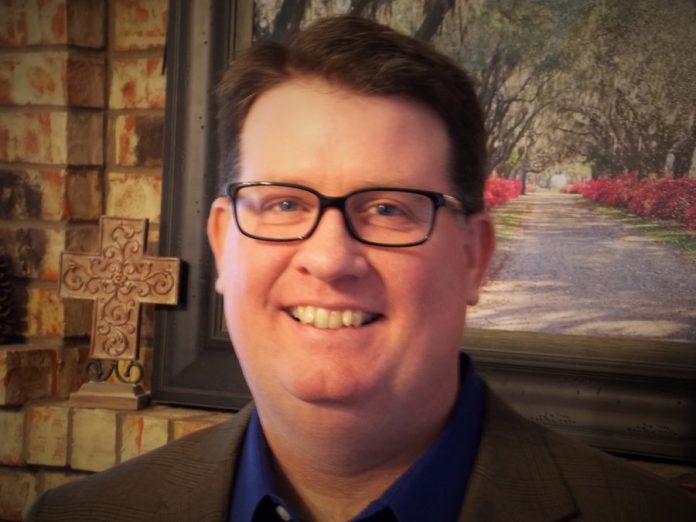
by Dan Jaworski, Highland Village City Council, Place 7
There has been a lot of discussion in the news about property taxes and why they keep going up, who is to blame, and how do we solve the problem of the so-called “back door tax increase.” Our legislature is in the midst of a special legislative session where this is a key issue to be addressed. I wanted to take this opportunity to offer some thoughts on the issue from the point-of-view of a small community in southern Denton County that not only explains the potential impact of the proposed legislation but also how we’re trying to meet the needs of our taxpayers in Highland Village while also remaining fiscally responsible- something legislators don’t think cities are capable of doing.
As we all know, local taxing entities collect property taxes each year to fund basic services as well as other services and amenities that we all enjoy. Cities collect taxes in order to fund police and fire service, build and fix roads, hire and keep city staff as well as other needed services. City property taxes are also collected to build and maintain parks and trails. These are all the obvious things we see each day as we walk, ride, and drive through our communities. What we sometimes don’t see that cities are doing with those tax dollars include such things hiring and training 911 dispatchers and buying or updating the communications equipment that they use, and keeping all those police cars and fire trucks in top performing condition so that they can adequately protect us when we call for help. This is all done day-after-day, year-after-year by cities through the property taxes that we all pay but in the grand scheme of things, it comes up to about 16% of the average annual tax bill (public schools by comparison collect about 60% of all taxes levied).
Let’s take a second to look at city taxes… The state allows “home rule cities” (most of us in Denton County live in “home rule” cities) to collect a maximum of $2.50 per $100 of valuation per year. There are 1,218 cities in the State of Texas and of those, 1,066 collect property taxes. Of all those, the average property tax collected throughout the state is .50 per $100 in valuation. Of all of those thousand-plus cities collecting property taxes, only 27 have a tax rate above $1.00. Additionally, on average, revenue for cities in Texas comes from about 40% in property taxes, 27% in sales taxes and the remaining 33% coming from various other fees. In my city, Highland Village, we rely on property taxes for about 65% of our revenue, 16% in sales tax and the remaining 19% comes from various fees. Our reality is that we will never get below about 65-67% of revenue from property taxes and we will never get above about 16% in sales tax revenue simply because our city development just doesn’t have a lot of available space for more sales tax development.
The revenue that is collected by cities, counties and schools is also capped by state law. The law only allows these entities to collect a maximum 8% per year above what was collected the year before. To put that into context, the average taxable value in Highland Village, prior to property owners being allowed to contest their county assessments, increased by a whopping 12% this past year. By the time we received our certified tax roll from the county, which comes after property owners go through the process of contesting their new assessments, this number had been reduced to right around 6%. On average, over the last ten or more years, Highland Village property values only increased on average by 2-3%. Clearly, we’re in a very hot real estate cycle. If cities revenue gains go over that 8% threshold I mentioned, you (the voters) can petition for what’s called a “roll back” election. If the election is successful, a city that collected more than 8% of revenue from the previous year’s total is then required to roll the tax rate back to that 8% mark. So, there are accountability measures in place to keep cities in check from runaway tax collections, frivolous spending, and ever-increasing and bloated budgets.
Going into the legislative session, legislators were crafting bills that would lower that revenue cap from 8% to as low as 4%. Proposals also included provisions that if a city went above that 4% cap, roll back elections would be automatically triggered rather than leaving it to voters to decide whether or not they wanted a roll back election. You may be thinking to yourself that “Hey, 4% annual growth in revenue is a lot! Does my city’s budget NEED to grow by 4% annually as an automatic function?” and that’s a legitimate question. My question is do we need the State to dictate to us how much more revenue we are allowed to collect when our residents are perfectly able to hold us accountable through the roll back process or the annual local electoral process? Is this legislation REALLY necessary when the average city in Texas is only collecting one-fifth of the tax revenue the law allows? Is this REALLY necessary and responsible in a period where property values are driving the increases in taxes NOT policies at City Hall? In short, is this a case of gross over reach on the part of the State? My answer is that it is, indeed.
Prior to the 85th Regular Session of our state legislature, our mayor, Charlotte Wilcox, and our city manager and finance director offered to meet with our legislative delegation, which includes Rep. Tan Parker, Rep. Ron Simmons and State Sen. Jane Nelson. Representatives Parker and Simmons attended the meeting and a staff member from Sen. Nelson’s office also attended. We (the City of Highland Village) laid out for them a scenario that encompassed the previous 15 years under the notion that the proposed 4% cap had been enacted at the beginning of that period. The goal was to demonstrate where we would be now under that scenario versus where we are under the current circumstance. The long and short of it is that we would have about $2.2 million dollars less in revenue over that 15 year period from where we are today. That may not sound like much over 15 years but for Highland Village, it means we would have only three quarters of the first responders under the 4% cap that we have now. That means our city would not be as safe today as it is. It means our fire department would not be able to respond to emergencies as effectively as they do today. Additionally, it would have resulted in an annual property tax savings of $74 per year for the average home owner in Highland Village. How does that $74 compare to losing a loved one to a heart attack or stroke because there weren’t enough emergency responders available to get to your home as quickly as they can today? I hate to paint such a scary picture but that’s the reality we’re facing.
So, where do we go from here? What are we, in Highland Village trying to do? First, we conducted a customer satisfaction survey in 2016 of residents throughout the city of Highland Village. We asked residents to rate the city on the quality of services provided and the value of those services. At the end of the survey, 80% of those polled said that they were “satisfied” with the level of service the city was giving residents at the current cost of those services. Our city staff has worked incredibly hard over the last 17 years to create an annual budget that has allowed us to maintain the exact same tax rate (.56963 per $100 valuation) over that 17 year period. Has there been more money each year because of increased property values? Yes, values have grown on average by 2-3% per year, far less than inflation. But it has to be repeated…we’ve kept the tax rate the SAME. In fact, this year the City of Highland Village will lower the tax rate to its lowest level in two decades. In addition, we raised the property tax exemption that our senior citizens and disabled citizens receive from $50,000 to $75,000 a year. We’re working hard to hold the line on spending and give our residents some property tax relief and we’re doing it on our own- without a mandate from the state.
At the time of my writing this column, the legislature is meeting in special session and the house and senate have competing bills with respect to the revenue cap on local property taxes. The senate has proposed a 4% annual cap while the house has proposed a 6% cap. In all likelihood, they will have to reach a compromise in a conference committee and it remains possible that they will not be able to reach an agreement prior to the special session ending. In that case, we can reasonably expect that the Governor will call a second special session in order to force legislators to reach an agreement that he can sign into law. Unfortunately, none of the proposals leave the decision of how much revenue is too much for cities and counties to collect up to the voters within those jurisdictions. All of the proposals leave that authority solely with the state and many of our legislators, dare I saw most of them have no experience in local government at all. You, the readers of this column know your cities best. You know best whether or not your city council and staff are providing you the services you want at a cost you find reasonable at a level of satisfaction you are comfortable with. We often talk about the importance of local control- the notion that those closest to our world know our world best. What the legislature is proposing effectively curtails that notion; an idea put forward by our Founding Fathers, by-the-way.
I encourage you to reach out to Rep. Parker, Rep. Simmons, and Sen. Nelson and convey to them that you have more faith in your city council and city staff to serve and protect you and your neighbors than you do the legislature in Austin. If you are unhappy with your property values, let them know that they can reform the appraisal system to be more transparent and market-based. If you truly want lower taxes, they can reform public school finance, the single largest source of taxes collected in every community. But they need to know that the current proposed property tax reform has absolutely no hope of reforming property taxes. In reality it returns virtually no money back to the taxpayers yet significantly hampers cities and counties from providing basic services to their residents. Is this the kind of heavy-handed and short-sighted leadership we need from our legislature?















